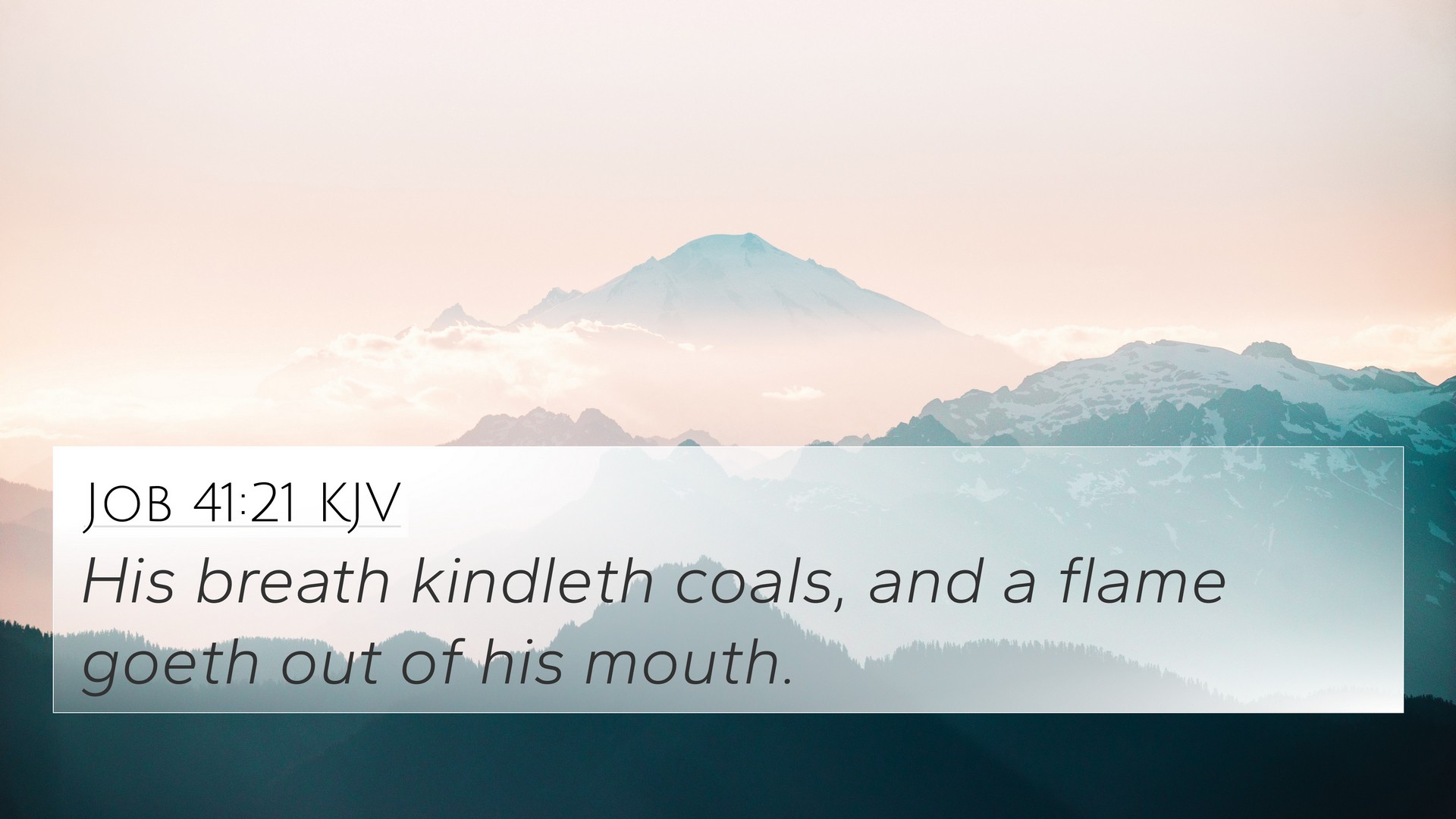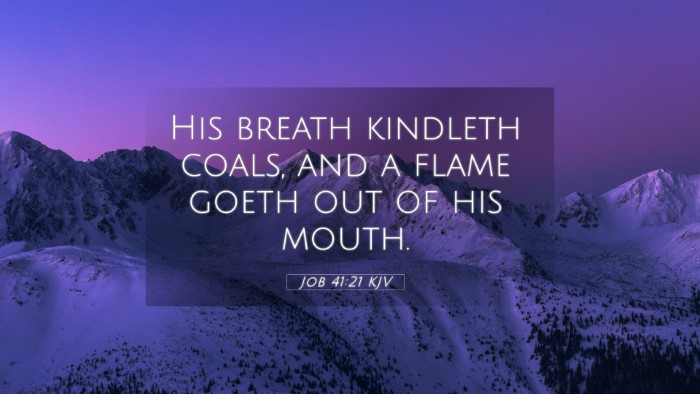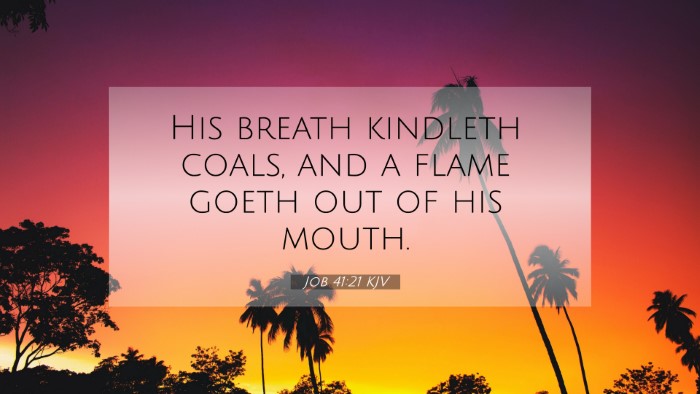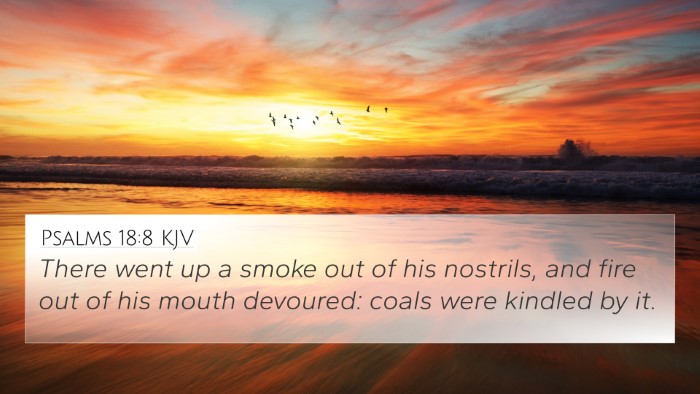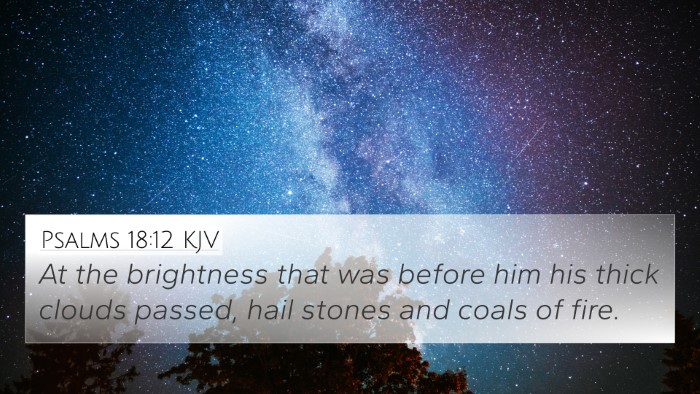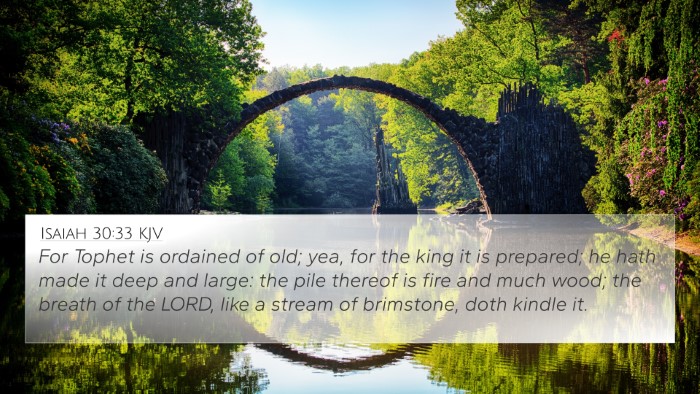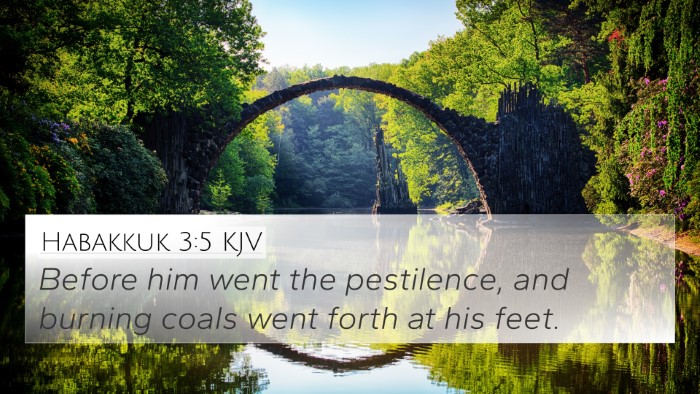Understanding Job 41:21
Job 41:21 states, "His breath kindleth coals, and a flame goeth out of his mouth." This verse is part of God's discourse that emphasizes the might and ferocity of the creature described, often understood to be the Leviathan. In this context, the verse paints a vivid picture of the power of this creature, drawing upon elements that symbolize its formidable nature.
Commentary Insights
This verse is laden with symbolism and serves to evoke a sense of fear and awe towards the power of God manifested in creation. Below are insights integrated from various public domain commentaries:
-
Matthew Henry:
Henry emphasizes that this passage illustrates the extraordinary and terrifying qualities of the Leviathan, a creature designed by God. His breath ignites coals, signifying an unparalleled strength that not only captivates but also intimidates.
-
Albert Barnes:
Barnes notes that this imagery serves as a metaphor for divine power. The description of flames and coals ignited by the creature's breath is reflective of God's creative might, positioning Him as the ultimate authority reigning over all creatures.
-
Adam Clarke:
Clarke interprets the verse as indicating the Leviathan's unique characteristics, suggesting that this creature's capabilities are unmatched by any other in the natural world, emphasizing humanity's vulnerability in the face of such power.
Thematic Connections and Cross References
Job 41:21 opens up discussions about God's power over creation and man’s limitations. Below are significant Bible verse cross-references relating to this theme:
- Psalm 104:26: "There go the ships: there is that leviathan, whom thou hast made to play therein." This verse acknowledges the Leviathan as a creation of God, positioning it within God’s dominion.
- Isaiah 27:1: "In that day the Lord with his sore and great and strong sword shall punish leviathan the piercing serpent, even leviathan that crooked serpent; and he shall slay the dragon that is in the sea." Here, the Leviathan is depicted in relation to God’s judgment and power.
- Job 26:12: "He divideth the sea with his power, and by his understanding he smiteth through the proud." This underscores God’s sovereignty over the powerful elements of creation.
- Genesis 1:21: "And God created great whales, and every living creature that moveth, which the waters brought forth abundantly, after their kind, and every winged fowl after his kind: and God saw that it was good." This verse reaffirms the magnificence of God's creation.
- Revelation 20:2: "And he laid hold on the dragon, that old serpent, which is the Devil, and Satan, and bound him a thousand years." The connection to serpentine imagery emphasizes God's authority over chaos and evil, similar to the themes in Job.
- Psalm 74:14: "Thou brakest the heads of leviathan in pieces, and gavest him to be meat to the people inhabiting the wilderness." This reflects God's victory over chaos and evil—again, tying back to Job’s theme of divine supremacy.
- Job 38:11: "And said, Hitherto shalt thou come, but no further: and here shall thy proud waves be stayed?" This establishes the limits God imposes on creation and its forces.
- Ezekiel 29:3: "Speak, and say, Thus saith the Lord God; Behold, I am against thee, Pharaoh king of Egypt, the great dragon that lieth in the midst of his rivers..." The imagery here relates to tyrannical powers depicted as monstrous and chaotic.
Conclusion
Job 41:21 serves as a reminder of the grandeur of God's creation and the fierce power of the Leviathan, symbolizing both the physical and spiritual realities of strength and vulnerability inherent in the world. Reflecting on this verse allows for deeper thematic Bible verse connections that can enrich one's understanding of scripture!
